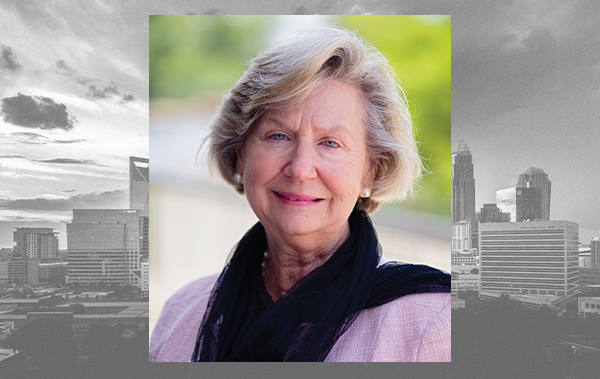As I begin my term as President of the N.C. League of Municipalities, I am so pleased to be working with a group of dedicated public officials and staff that are committed to making our communities the best that they can be.
I say that recognizing how I, and all of us, are so dependent on one another and on cooperatively creating consensus to achieve lasting, positive change.
We have seen just that over the past year, living through both a global pandemic and calls for a more equitable and just society. Our local communities, our state, and our country still have a long way to go in answering these challenges, but I believe the leadership that we have seen in our cities and towns has been a key to putting us on a path to do so.
Locally, in our towns and cities, we have been at the forefront advocating for public health measures to keep residents safe and helping our residents and businesses weather a tough economic time. Collectively, through the League, we have worked to make the case for economic assistance at the federal level resulting in a once-in-a-
generation opportunity, seen in the federal American Rescue Plan, to make investments that can reap long-term benefits.
The League’s formation of the Task Force on the Impact of City Leaders on Racial Equity and its report issued earlier this year creates the promise of both a guide to local examinations of racial equity and future services that can help cities and towns navigate this tough but critical challenge.
In short, the leaders of our towns and cities are leading, individually and collectively.
But we can and will accomplish more.
The most effective way to do that is to recognize that we must work across boundaries. I firmly believe that for each North Carolina city and town to reach its full potential requires that municipal leaders reach across those boundaries to work with county, state, and federal officials; to pull in business owners and non-profit sector leaders; to build coalitions that establish common purpose for the common good.
With every challenge comes opportunity, but we live in a complex world where resources can be scarce and one action brings another. Leaders must collaborate beyond their individual authority to navigate that complexity and work with others to achieve collective goals.
Earlier this year, the City of Salisbury—along with the local business community, nonprofits, and local educational leaders—engaged in partnership with Operation HOPE, a nonprofit organization that has been working since 1992 and launched the One Million Black Businesses Initiative (1MBB) in 2018 to address poverty and empower inclusion by encouraging black entrepreneurship. We hope that, by working together, we can create benefits for our entire city—benefits that are not only economic, but also contribute to people’s sense of security and their quality of life.
This partnership is a recognition that local government cannot solve every problem. Just like each of us individually has limitations, each of our cities and towns—no matter our size, location, or demographic make-up—has limitations. But they also enjoy strengths. We can and must reach out to partners who have different strengths.
When we facilitate and help create those partnerships, we find solutions that are wholistic, that help a cross-section of people, and that bring communities together to help them see that we are all in this together.
Over the past several years, the League of Municipalities has progressed tremendously to become an effective and efficient advocacy and service organization. As president, I commit to work with all of you to make even more progress, and I believe that we can by collaborating with others, by building coalitions, and by finding others in the public and private sector with whom we share common purpose and can work with in creating common good.
I am so looking forward to working with all of you in the year ahead to do that, and to advance the best in all of our cities and towns.














